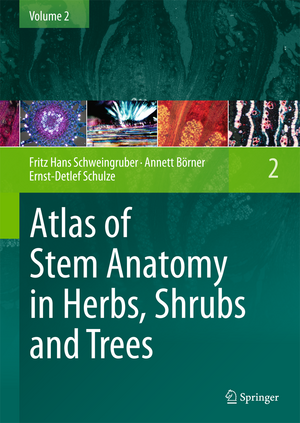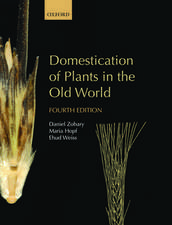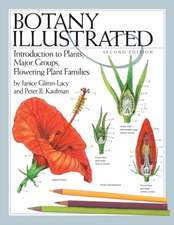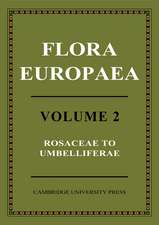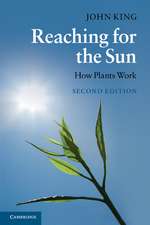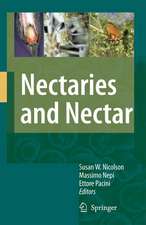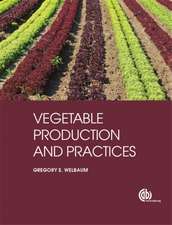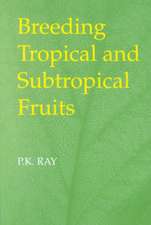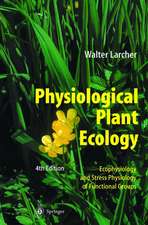Atlas of Stem Anatomy in Herbs, Shrubs and Trees: Volume 2
Autor Fritz Hans Schweingruber, Annett Börner, Ernst-Detlef Schulzeen Limba Engleză Hardback – 7 sep 2012
Presented in Volume 2 are microsections of the xylem and phloem of herbs, shrubs and trees of 1000 species and ca. 35 families of various life forms of the temperate zone along altitudinal gradients from the lowland at the Mediterranean coast to the alpine zone in Western Europe. Special attention is given to the very diverse family of Asteraceae. The global perspective of the findings is underlined by the analysis of 400 species from the Caucasus, the Rocky Mountains and Andes, the subtropical zone on the Canary Islands, the arid zones in the Sahara, in Eurasia, Arabia and Southwest North America, New Zealand and the boreal and arctic zones in Eurasia and Canada.
The presence of annual rings in all life forms demonstrates that herbs and dwarf shrubs are an excellent tool for the reconstruction of annual biomass production and the interannual dynamic of plant associations. The common principle of the anatomical expression of secondary growth is a key factor in understanding evolution and adaptation processes in all life forms, from the 3 cm tall crepide pigmea (Crepis pygmaea) in the alpine zone to the 40 m tall ash (Fraxinus excelsior) in Central European riparian forests. The study opens vast fields of research for dendrochronology, wood anatomy, taxonomy and ecology.
| Toate formatele și edițiile | Preț | Express |
|---|---|---|
| Paperback (2) | 769.51 lei 38-44 zile | |
| Springer Berlin, Heidelberg – 23 aug 2016 | 769.51 lei 38-44 zile | |
| Springer Berlin, Heidelberg – 23 aug 2016 | 1132.33 lei 6-8 săpt. | |
| Hardback (2) | 1144.64 lei 3-5 săpt. | |
| Springer Berlin, Heidelberg – 7 sep 2012 | 1144.64 lei 3-5 săpt. | |
| Springer Berlin, Heidelberg – 5 apr 2011 | 1152.55 lei 3-5 săpt. |
Preț: 1144.64 lei
Preț vechi: 1395.90 lei
-18% Nou
Puncte Express: 1717
Preț estimativ în valută:
219.06€ • 227.85$ • 180.84£
219.06€ • 227.85$ • 180.84£
Carte disponibilă
Livrare economică 25 martie-08 aprilie
Preluare comenzi: 021 569.72.76
Specificații
ISBN-13: 9783642204340
ISBN-10: 3642204341
Pagini: 400
Ilustrații: VIII, 415 p.
Dimensiuni: 210 x 297 x 25 mm
Greutate: 1.47 kg
Ediția:2013
Editura: Springer Berlin, Heidelberg
Colecția Springer
Locul publicării:Berlin, Heidelberg, Germany
ISBN-10: 3642204341
Pagini: 400
Ilustrații: VIII, 415 p.
Dimensiuni: 210 x 297 x 25 mm
Greutate: 1.47 kg
Ediția:2013
Editura: Springer Berlin, Heidelberg
Colecția Springer
Locul publicării:Berlin, Heidelberg, Germany
Public țintă
ResearchCuprins
Introduction to Volume 2.- Monographic Descriptions (Actinidiaceae – Verbenaceae).- Ecological, Morphological, Taxonomical and Functional Significance of Stem Features Within the Dicotyledons.- Anatomical Adaptations to Environmental Conditions.- Ontogeny of the Xylem.- Secondary Woodiness and Paedomorphosis.- Conclusions.- References.-Alphabetic List of Species.
Caracteristici
Presents a taxonomical and ecological evaluation of stem anatomical features of all life forms of dicotyledonous Angiosperms Throughout in color Has a high aesthetic value Opens vast fields of research for dendrochronology, wood anatomy, taxonomy and ecology Includes supplementary material: sn.pub/extras
Recenzii
From the reviews:
“This remarkable book is the first of two volumes that represent the fruit over 40 years work by Fritz Schweingruber on the stem anatomy of dicotyledonous herbs, shrubs and trees. … In summary, the Atlas of Stem Anatomy in Herbs, Shrubs and Trees is an important new contribution to our knowledge of stem anatomy, and particularly to our knowledge of the occurrence of secondary growth in so-called herbaceous plants.” (Bruce Kirchoff, Plant Science Bulletin, Vol. 57 (3), Fall, 2011)
“This is a stunning book, laden with top-quality colour photographs of both whole plants and photomicrographs. … a reference book and source of inspiration it should be on the shelf of any plant science institution’s library.” (Barry Meatyard, The Biologist, Vol. 59 (1), March, 2012)
“This remarkable book is the first of two volumes that represent the fruit over 40 years work by Fritz Schweingruber on the stem anatomy of dicotyledonous herbs, shrubs and trees. … In summary, the Atlas of Stem Anatomy in Herbs, Shrubs and Trees is an important new contribution to our knowledge of stem anatomy, and particularly to our knowledge of the occurrence of secondary growth in so-called herbaceous plants.” (Bruce Kirchoff, Plant Science Bulletin, Vol. 57 (3), Fall, 2011)
“This is a stunning book, laden with top-quality colour photographs of both whole plants and photomicrographs. … a reference book and source of inspiration it should be on the shelf of any plant science institution’s library.” (Barry Meatyard, The Biologist, Vol. 59 (1), March, 2012)
